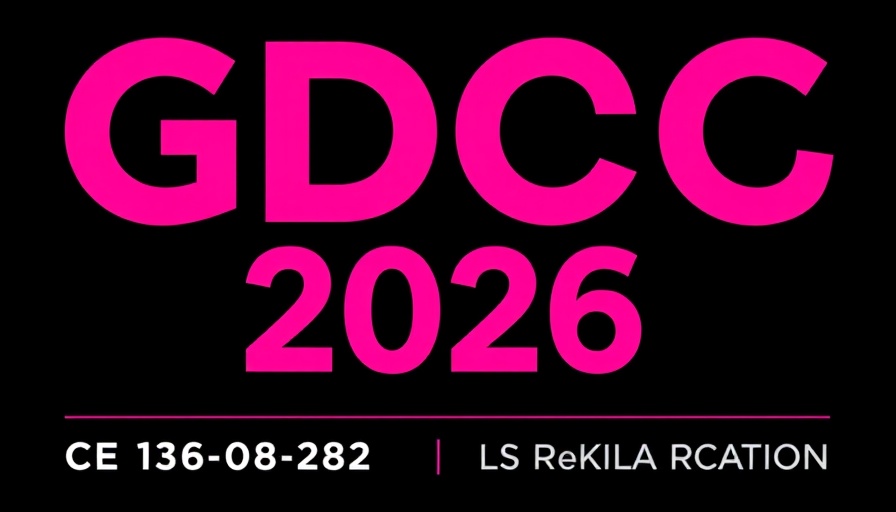
Explore Unique Opportunities at GDC 2026: Calling All Innovators
The Game Developers Conference (GDC) 2026 is an exciting hub for creativity and innovation, where the gaming community gathers to share ideas, learn, and network. This year, the GDC team, led by event director Stephenie Hawkins, is extending an invitation for collaboration with the Call for Partners program, allowing creatives, developers, and industry professionals to shape a memorable experience at the festival.
What’s New at GDC 2026: The Festival of Gaming
GDC 2026 is set to introduce the Festival of Gaming, which promises more than just a typical conference; it aims to create a platform for inspiration, learning, and social engagement. This year’s festival will include activities such as interactive showcases, awards shows, and curated meet-and-greet sessions among other attractions. Each element is designed to foster networking, creativity, and fun, making it an ideal space for hobbyists and professionals alike.
Understanding the Call for Partners Submission Process
With a submission deadline extended to October 10, this year's Call for Partners is designed to gather creative ideas from the gaming community. Hawkins emphasizes that a successful partnership proposal should reflect the unique vision you want to contribute. Categories include media partnerships, scholarship opportunities for marginalized groups, and festival activations that can occur throughout the event. It encourages submissions that demonstrate creativity and engagement.
What are Festival Activations?
As part of the festival, the concept of Festival Activations stands out, offering a platform for fellow creators to bring their wildest ideas to life. Activities can range from community meetups, performances by local artists, video gaming events, and even interactive art installations. These activations, previously exemplified through successful collaborations such as the Video Game History Gallery and various gaming competitions, reflect the creativity inherent in the gaming community.
Scholarships: Opening Doors for Marginalized Communities
The GDC has a strong commitment to inclusivity, ensuring opportunities are available to underrepresented voices in gaming. During the last event, over 700 passes were distributed to individuals from marginalized backgrounds, facilitated by various supportive organizations. This initiative is part of their ongoing efforts to widen participation and bring diversity to the forefront of the gaming industry.
Networking Opportunities: Why Getting Involved Matters
The GDC conference is known for its vast networking opportunities — something that many attendees value highly. This year, by becoming part of the Affiliate Program, organizations can promote their own events alongside official GDC activities, fostering a richer social experience for everyone involved. Participation in this program showcases the cooperation between industry professionals and community members, contributing to a more vibrant festival ambiance.
Creative Contributions: How to Elevate Your Pitch
If you’re considering submitting a proposal to the Call for Partners or any other GDC-associated activities, the key is to think creatively! Hawkins suggests that the best pitches are those that incorporate clear objectives, realistic timelines, and detailed explanations of your vision. By contextualizing your ideas within what you believe attendees would want to engage with, you can spark interest from the GDC selection committee.
Engage with GDC 2026 for a Dynamic Experience
As the GDC 2026 approaches, the committee actively encourages more innovators to join the fun. Whether through scholarship contributions, media partnerships, or inventive festival activations, your creativity can significantly enhance the festival's experience. Don’t miss the chance to share your vision; make sure to submit your ideas before the October 10 deadline!
To participate and learn more about how you can contribute, check out the official GDC website. This year is an opportunity for all to shape not just an event, but the future of gaming culture and community.
 Add Row
Add Row  Add
Add 




Write A Comment